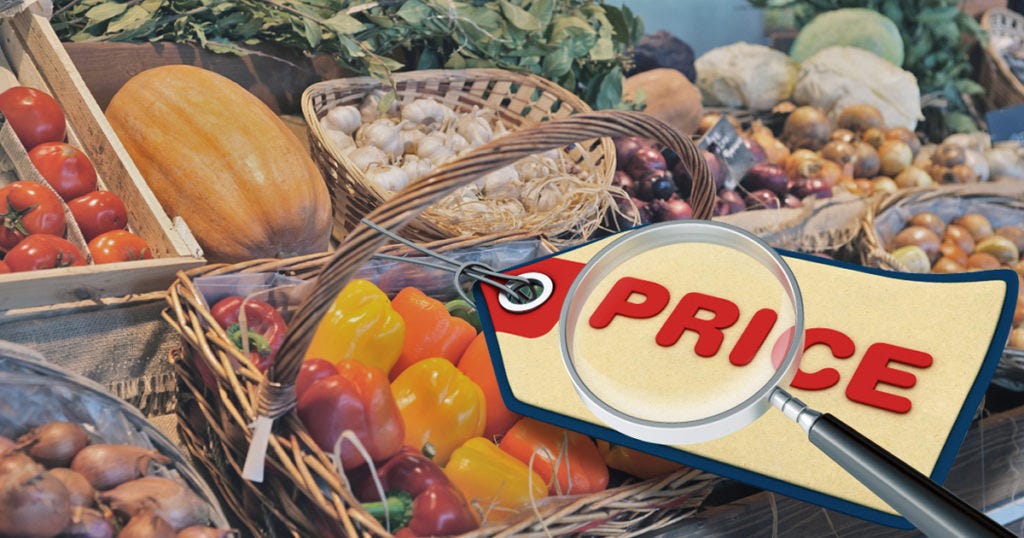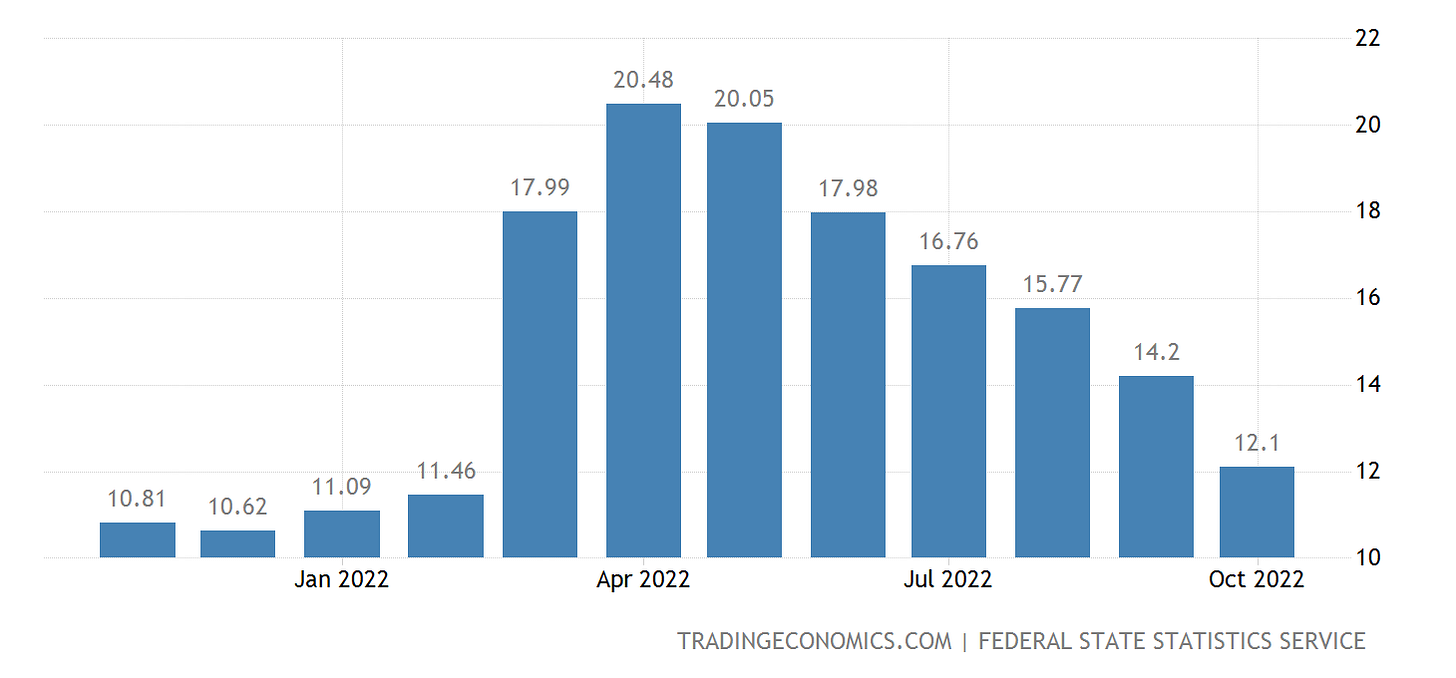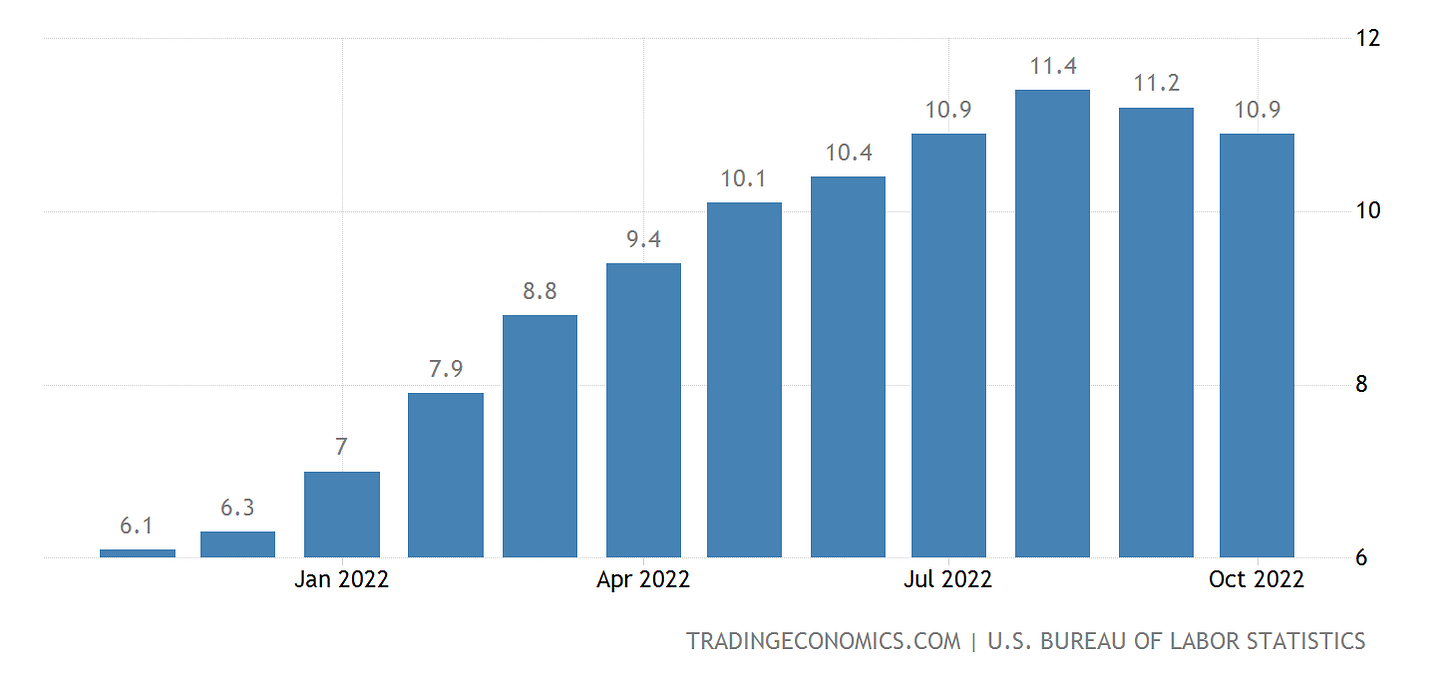That fertilizer price trends are moving in a good direction at this time is exceedingly good news for Europe, which desperately needs food price inflation relief.
Food price inflation is a global crisis, with even developed nations grappling with increased—and increasing—food prices.
Perversely, one of the areas with the worst food price inflation is Europe—one of the darker consequences of the Eurozone’s economic war with Russia.
While food price inflation in the Eurozone had already begun to rise in 2021, it was not until 2022, after Russia invaded Ukraine, that food price inflation began to rise significantly, and is now more than four times what it was at the beginning of the year.
This has been a steady increase, and there is no indication of any tapering off in the near future.
Moreover, food price inflation is significantly worse in several of the EU’s member states. In Germany, food price inflation has breached the 20% year on year marker.
Nor is that even close to the Eurozone’s worst case of food price inflation. That likely is Lithuania, which reported food price inflation for October of 33.7%.
In between Germany and Lithuania are the Eastern European countries such as Poland, which reported October food price inflation of 22%.
Across the continent, food price inflation is high and getting higher.
However, while Russia is grappling with high food price inflation, unlike in the Eurozone, food price inflation has behaved more like in the United States—inflation spiked earlier this summer, and then began declining.
Currently, Russia’s food price inflation is less than Germany, Poland, or Lithuania, and even less than the overall Eurozone. Russia’s food price inflation rate is more comparable—and showing behavior more similar—to that of the United States.
Previously, I have discussed how much of the respective economic deteriorations in Europe and in Russia are the direct result of Putin’s war in Ukraine, and the consequent sanctions regime the EU has imposed on Russia.
While there are numerous aspects to the economic contractions and disruptions taking place both in the EU and in Russia, overall the two polities are locked in an economic war of attrition, and it is far from clear which side will withstand the economic pressures of the other to become the last economy standing—although the damage being inflicted on both sides makes the notion of “victory” in this regard most uncertain. Any victory between the EU and Russia in their economic war of attrition is almost certain to be of the Pyrrhic variety.
That being said, food price inflation is one aspect of that war where the EU is at present clearly losing.











Globalists puppet show?